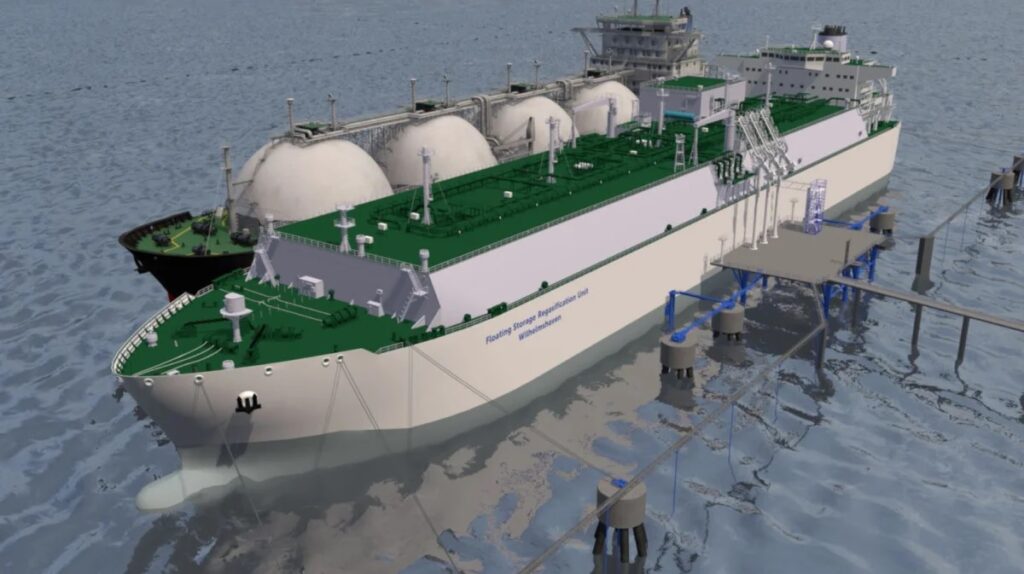Germany is investing in LNG terminals as part of its efforts to diversify away from Russian gas.
In May, it leased four floating storage and regasification units (FSRUs), each of which can import at least 5 billion cubic meters (bcm) of seaborne gas per year. The competition of first one was yesterday in Wilhelmshaven.
Uniper and RWE created Wilhelmshaven and Brunsbuettel, respectively.
Stade on the Elbe River and Lubmin on the Baltic Sea will also receive an FSRU.
Germany has also formalized the chartering of a fifth floating LNG ship for Wilhelmshaven. It is scheduled to arrive in the first quarter of 2023. This is the planned term according to the economy ministry.
Floating storage and regasification units everywhere possible
Uniper received approval in August to begin construction on an FSRU facility.
Facilities to import ammonia will be built at the site later. Also, an electrolysis plant to convert ammonia into clean hydrogen will be established on the site.
An FSRU at Brunsbuettel is expected to start delivering gas in late 2022 or early 2023, serving as a precursor to a fixed LNG facility.
There will be LNG pipelines to the neighbors
Gasunie, a Dutch gas network operator with a 40% stake in the FSRU project, is planning two related gas pipelines.
The owner of the fixed facility is the state bank KfW and RWE. Shell has committed to certain guaranteed purchases.
Hanseatic Energy Hub (HEH), which is set to receive an FSRU by the end of next year, has previously invited market participants to book regasification capacity at a planned land-based hub.
This could happen in 2026.
Fluxys, an energy network company, Partners Group, a logistics company, and Dow Chemical, are backing it up.
EnBW has made a purchase commitment.
The terminal and port applications are submitted. The final investment decision will happen next year.
The state involvement in LNG
The state-leased FSRU destined for Lubmin probably will be operational by the end of 2023, according to its operators.
Earlier this year, a private consortium, Deutsche ReGas, announced plans to build another FSRU hub there. They claim a recent tender for an annual regasification capacity of 11.7 bcm was oversubscribed, with 15.2 bcm sought.

